Attack editor Greg Scarth meets deep house legend Kerri Chandler for an interview which covers everything from modified drum machines to New Jersey gun culture.
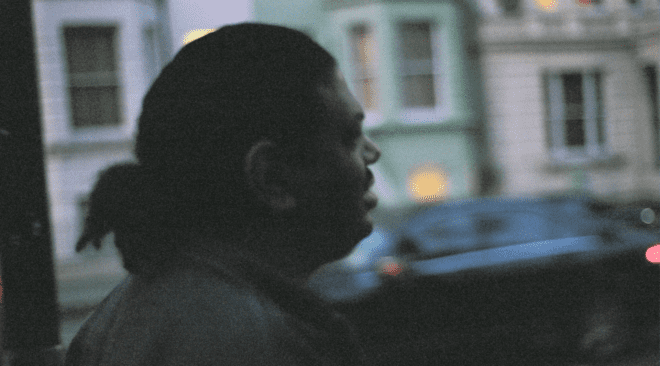
With an impeccable discography of house classics stretching all the way back to the late 80s, Kerri Chandler has truly earned the right to be described by that much-misused term, legend. The New Jersey producer’s take on dance music has played a key role in defining the classic deep house sound.
We caught up with Kerri in London as he made a flying visit to play an extraordinary seven hour DJ set at Loft Studios. Dragging himself out of bed the following day to meet us in the bar of his hotel, Kerri was as gracious, humble and generous as any artist or DJ we’ve ever met. Despite only running on a couple of hours’ sleep, he was genuinely excited to chat about everything from his musical influences to his thoughts on the current dance music scene.
In what we think is probably one of the deepest, most revealing interviews Kerri has ever given, we focused our discussion on the events and people who have inspired his music, the characteristics which separate the Jersey scene from its New York and Chicago counterparts, and the relentless hunger for technological innovation which has driven his approach to production and DJing.
Attack: Let’s start by talking about the way you got into house music. You’ve spoken before about growing up around music and how you began DJing in the early 80s, when you were 13 years old, but you didn’t start releasing records in your own name until around 1992. What were you doing in the intervening period?
Kerri Chandler: I was interning in studios from when I was 14 years old. People would come in off the street to rent studio time, but it was just the average Joe who thinks he can make a record and has no idea of the process. A lot of rappers and a lot of R&B singers. We didn’t have too many musicians coming in. They didn’t have a producer, didn’t have a track…
Being a kid, I was like, ‘OK, I’ll make you something.’ After a while I found myself producing for people. They’d bring in a record that they wanted to sound like and I knew the sound so well because I’d actually watched people like Kool & The Gang in the studio and I knew exactly what they used. I was only supposed to be an engineer but I found myself being more of a producer. Eventually I thought, OK, if I’m doing all this I might as well make a few things for myself. I had another job on the weekend DJing at Club America, so I’d make edits and records to play there.
What kind of music was this?
This is like ’86, ’87, so it was disco and early house music. I never really got into the R&B stuff and we never really played rap music at the club. We just played rap stuff around at parties.
What was the breakthrough for you in terms of getting serious with house music?
Around ’88 I made an edit and one of the singers gave a copy of it to Tony Humphries. I didn’t know Tony well but he started playing things I’d done on the radio. I realised there was a buzz around it and everything started to fall into place. I met Merlin Bobb who I was a long-time fan of for doing stuff on BLS along with Naeem Johnson. I didn’t realise that he was the head of A&R for Atlantic. When I went to Merlin’s office I met another person who’d go on to become a long-time friend, Jerome Sydenham. Jerome was Merlin’s assistant at the time and we instantly hit it off like brothers. The first time I went there me and Jerome were wearing the same exact clothes – same colours, same shoes. Someone said, ‘Is this your cousin?’ I just laughed and said, ‘Yeah.’ Ever since then we’ve been inseparable. It’s just been an ongoing ride since then, and that’s where the whole Jersey thing comes in.
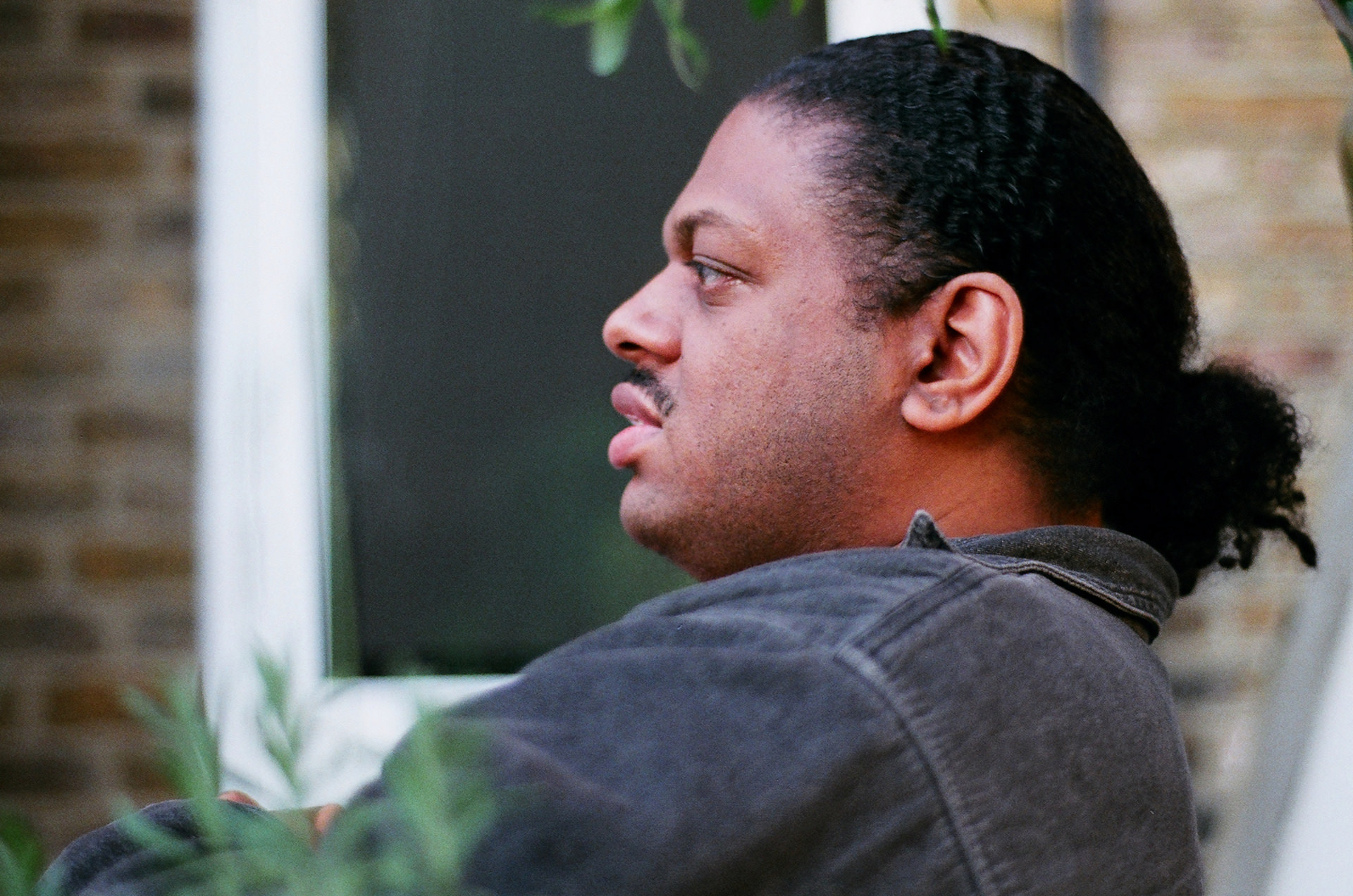
Jersey is obviously an important part of the story. Explain the significance of the New Jersey scene at the time you were breaking through.
That was the springboard. Tony was kind of the voice of all of us at the time. I guess Frankie Knuckles was Chicago’s voice for those guys. We had Tony and David Morales. Once I met one person and they knew what songs I made, everyone welcomed me in. I guess I was the kid and a lot of people thought I was going to be a flash in the pan. That was a fun part for me, trying to make it understood that I wanted to be around for a long time.
People like to pigeonhole those early dance music scenes, so we look for these common trends in Chicago house, Detroit techno, New York garage, New Jersey house and so on. Were those differences apparent to you at the time?
I can tell you from Jersey’s standpoint that they were obvious. In East Orange where we grew up there was nothing to do. I guess it was the same way in Detroit. We did what we could with music. Our attitude was, rather than going out and shooting someone or robbing someone, let’s make some music and have some parties.
All of us were inspired by each other and there were a lot of people making music. We all knew each other. Whitney was the older kid that we’d all hang out with and go and get candy with. There was Naughty By Nature, who were known as The New Style back then. Latifah – Dana – used to come to the club all the time. Biz Markie always used to be around. Mtume lived just down the block. My mother used to babysit for Steve Arrington from Slave. Pic Conley from Surface was my dad’s friend; he was there at the house every day. Bernie Worrell was my best friend’s uncle. Lauryn Hill was like the next generation. I had all these influences and people around me who were making music and if I needed to talk to someone they were there.
Do you think there’s anything in particular that all those artists had in common?
There’s only one. Every year on the fourth of July the whole city would come together and we’d watch the fireworks in the stadium. There’d be bands on and we’d get to see all of them. New Edition would be there all the time – and it’s pretty obvious why that was now because of Bobby. Bobby and Whitney was years in the making. I hate to say it but they’d always come to some place like McDonald’s and the girls would go crazy then the guys would come and beat their asses. They’d still come back to East Orange and we could never figure out why.
The New Jersey music scene was always a gospel-based thing. When you were a kid you had to go to church. In that whole area, all you had was faith. There’s a saying I think Treach made famous: If you make it out of East Orange without getting shot or stabbed, you’ll be alright. That’s the truth. We’ve always had it. I’ve always been in places where somebody has a gun, somebody’s getting shot and we’re running. It’s daily. There’d be a war every night. The minute you heard something, everybody got on the ground. It’s routine. The cops would never come while this was happening, they’d just come to pick up the bodies. That’s where we grew up.
So East Orange was pretty tough?
One time a doctor who lived nearby went to get groceries and a gang broke into his house, beat up his wife and murdered her. When he arrived home with the groceries they saw him, ran outside and ran him over with his own car. That was a typical night in East Orange. And that’s the nice side of town.
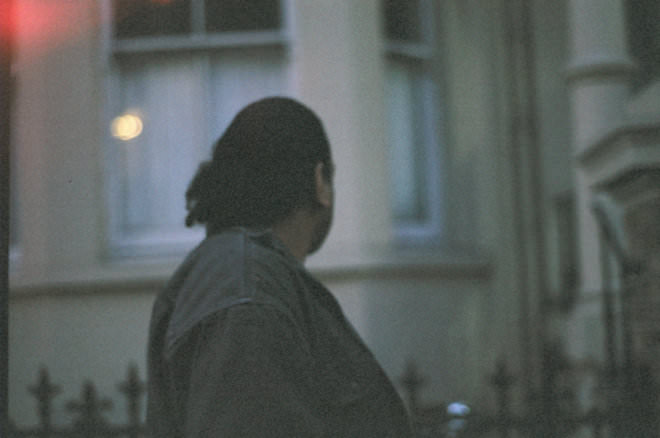
When did you get out?
I left for good after my daughter’s first birthday and swore I’d never go back. We were having a birthday party outside her grandparents’ house. My friend Chino XL had a new truck, a Lexus or something, so we were sitting in the truck planning what to do the next day – I think it was the Puerto Rican Day Parade – and the next thing I know two guys in ski masks come up with TEC-9 machine guns. They shout at me to get out of the car. I looked over and I thought it was a fake gun, so I’m like, ‘OK, you got that. I’ll get out the car, whatever.’
Chino told me he could see it in their eyes that they didn’t want the car, they wanted him. I’m trying to sneak back and I’m thinking, ‘Chino, get the hell out of here.’ They told my girlfriend’s brother to get down on the ground and they walked over him. Chino tries to peel out and they just start shooting the car up. I’m like, ‘Oh shit! This is crazy. I’m never coming back here.’ That’s how I left it.
I’m not surprised.
That’s only one story. There’s another one from Zanzibar, actually. My girlfriend Tracy at the time, her birthday was September 1st. I don’t know what it is about birthdays. We’d been going out for maybe three years and we were planning to be married. Her ex-boyfriend didn’t like the idea of us being together at all. This night Tracy was going to stop at Zanzibar first then meet me at Club America. He was at Zanzibar that night and saw her in the club, walked out with her I guess, raped her behind the club, bashed her head open with a rock, stuck a stick up inside of her, then dragged her behind the bushes outside and left her for dead. It was a few days before he confessed to what he did and what happened.
I’m so sorry. That’s a tragic story.
That was typical, people with that kind of mentality like it’s do or die, a day at a time. The only escape was drugs or music. I always picked the latter of the two…
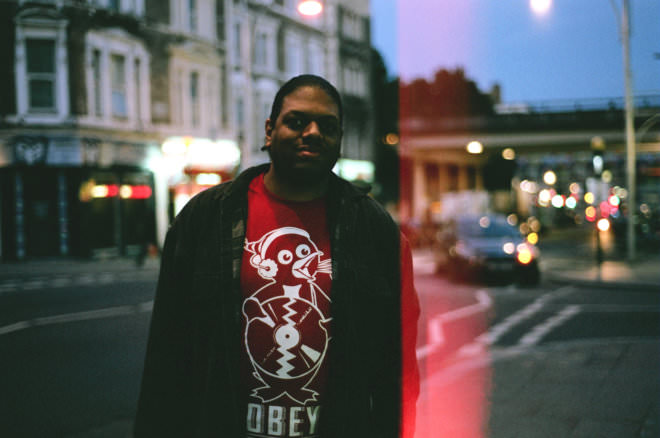
What were New York, Detroit and Chicago like in comparison to Jersey?
New York had infamous clubs. Octagon, 1018, The Red Zone, Sound Factory Bar, Sound Factory… I’m trying to think of the crazy ones. I got to play at the Garage when it was closing, back in the 80s. Shelter, of course. There were so many places. They popped up over night. New York was more like, I can’t say a fashion show but they were more upscale than we were. It was like decadence, cash, sex, drugs. All we had was hope, gospel and some kind of raw talent.
I don’t know as much about Detroit but I’ve got a lot of friends there. You can drive down the road, buy a set of guns from a pawn shop, then drive a little bit further and buy boxes of bullets. And it’s legal as long as you keep it on display. You can tote a shotgun like you’re Wyatt Earp, walking down the street. I guess they grew up with that mentality: Don’t fuck with me, or you’re gonna get fucked up. They’ve always had that edge. They had the same thing, when the economy got really bad, they turned to music and they used the best things they could get their hands on. They wanted to have fun too. Can’t blame them.
Chicago, same kind of thing: a lot of vocals, a lot of gospel but the difference is it’s cold as hell. They got the fucking Hawk to deal with! They wanted to have to fun too. They got everything there: good, bad, ugly, gospel. It’s about how you grow up in the culture around you. You make what your surroundings are.
And that really seems to inform your music.
Absolutely. Every song I’ve ever made is about my day. I think for any songwriter that’s the best way to do it. It has to be a life experience other people can relate to. I don’t just go and make tracks by numbers. The best experience I ever heard was from an interview with Quincy Jones and it made so much sense to me. He said you should think of each instrument as a voice and ask what that voice would be saying. If it’s a bassline you get a sound, a colour, a picture. If it’s a flute you think of birds or something flying. All of these things can paint a picture of the colour of your day. That’s how I’ve always been: I think of what the sound is and the mood and the tone I want it to convey, even if it’s an instrumental.
How do you think your music fits into the house scene at the moment? Deep house really seems to have come back into fashion recently. Do you think your style’s become fashionable again?
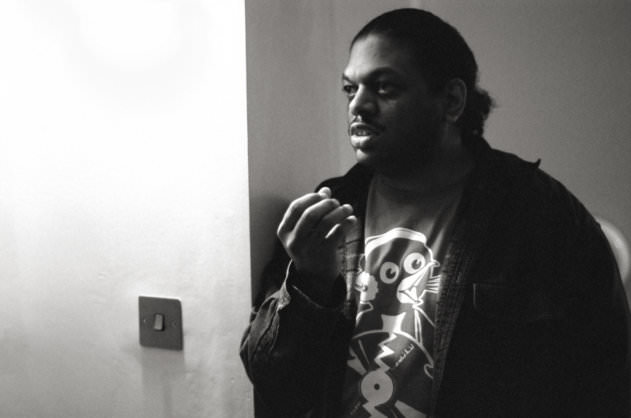
Absolutely. I’ve always thought it came back around every seven to ten years when the next generation takes over. The only direction that really changes is the instruments that you use, or the tools you use to mix things up. When I started it was just records and reel to reels. I learned to adapt and catch onto that, then I found ways of even bringing my sequencer with me when I came out to play. I was doing something that most people weren’t doing unless they were doing techno. People thought I was crazy at first, but I saw it coming. Why wouldn’t you want to bring your studio to a club? You could remix things live; why would you want to keep it to records?
I had things like effects and tape delays that you could actually put your hands on. This was back in like ’88, ’87. I set up racks and have things running back with everything. I used to use this program called Texture Live and it didn’t sound any different to me making up records on the fly. I loved doing that. That’s what I was known for, going overboard with things.
Same thing again, technology got smaller. Next thing I knew I could take my laptop, a couple of people started adapting programs. The first program I got involved with was called PCDJ and then this thing called DJ System. Then I met this guy who had a company called N2IT in Amsterdam and he made the first vinyl timecode system. This was like ’96, ’97. He sold that off to Stanton and they made Final Scratch. Traktor was still doing their thing but they didn’t have anything tactile.
People were still looking at me like I was crazy, ‘What is that? Why are you using that thing?’ ‘Because there’s about a thousand records in that thing. I can only fit 200 records here in my bag so now I don’t ever have to leave anything at home. This was around the same time as people started using CDJs and burning CDs and that was cool but it didn’t feel as tactile. I made scroll wheels and little miniature mixers.
Now it’s the same thing: the next generation are coming through and everyone’s using computers and memory sticks. They’re doing exactly what I wanted to do since 1988, it’s just now that the technology has finally caught up with what I always thought it could do.
When did your association with Pioneer begin?
From the very first CDJ. I was in Japan way back in the 90s and they gave me a prototype before the first CDJ-500 came out. I had to special order blank CDs and I bought this monster-sized Philips burner which burned at the fastest speed available, which was like times two. The first time I ever played on the CDs was at Club Yellow in Tokyo. People were looking at me like, ‘What is that? What are these boxes?’ They asked me to play more on the CDs instead of the turntables and every time I put a new CD in this guy came over with a huge camera with a light, lighting up the whole club.
And you still help with the development?
Yeah, I still help out when I’m over there. It’s like a secret society. We all get together in a room and beta test things, then at the end they’re like, ‘Don’t tell anyone you were here!’
It’s not just other people’s products that you like improving though, is it? When did you first get into modifying and building your own equipment?
I think it was more my dad’s thing at first. I always thought my dad was really cool. He always had people like Surface and Kool & the Gang round to play at the club and I’d get to go in the studio and watch them record. I just thought that was the coolest thing. Just looking at things like mixing desks I was in awe. SSLs and Neves, these things as big as a car. I was this little curious kid, running round going, ‘What is that?! What’s this thing?!’
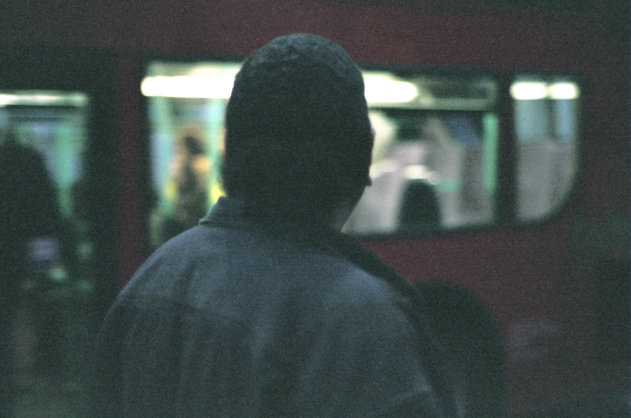
That was a place called House of Music. A lot of records came out of there and I was lucky to see them getting made. Then when I was 14 years old I got a job interning at another studio. At 15 I got a job interning at a television studio and became production manager, then when I was 16 I went back to recording and became the head engineer. Anyway, I found myself with all these machines that people wanted to use, but none of them had MIDI, so I paid a company called Studio Electronics to add MIDI to my 808.
This was around the time they were doing their rackmount MIDI upgrades for the Minimoog, right?
Yeah. They were doing modifications before that. I called them up about the MIDI upgrade for the 808 and said, ‘You know what, I was curious – could you extend the bass and really chunk the shit out of this thing?’ I had everything done. It cost me a fucking mint. It had a couple of problems early on and they said, ‘You can send it back or you can open it up, desolder this cable and reconnect it over here.’
I didn’t think it could be too hard. I’d already been to school for it and done some smaller projects. I opened it up and I saw how they’d wired everything. That was the beginning for me right there. ‘Oh, I see, they just changed these resistors, changed this pot… I wonder what else I could do with this shit.’ I did the same thing to my 909 that they did with my 808 and that’s where my love of modifications began. People ask how I get my kick drums to sound so big. That’s what it sounds like straight out of the machine!
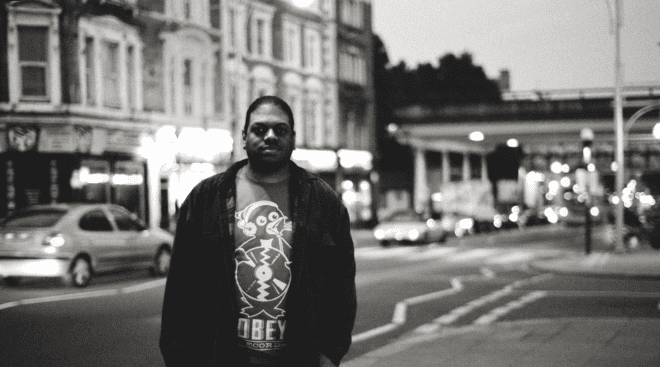
When you were starting out did you ever think house music would end up being a lifetime career for you?
At the time when we were doing it it was way before it was cool to be a DJ. We just wanted to have fun. We wanted an outlet, a release, a way to voice what we’d gone through. We were writing memoirs but doing it on records. That’s why I think rap is so popular because so many urban kids are growing up in that same situation. I’ve never wanted to make a record that my grandmother couldn’t listen to. That’s the only reason I didn’t stick to doing rap stuff and the reason I got into house.
I embraced it for two reasons: one was that it had more of a gospel root background and I always had faith. I was never a religious person because I’ve always seen religions make war. To me that always seemed strange. If I had to follow one it would probably be Buddhism because they’re harmonic and they don’t bother anyone. I just take what I know and leave it as that.
You weren’t trying to be superstars but a lot of you became famous as a result of house music.
I didn’t even think I’d be famous. The truth of it is that the people I’ve known the longest in the business have always been the same. We’ve always been very open-minded, very humble. I can pick up with all of my friends where we left off. If I see David Morales it’s no different to the first time I saw him.
Kerri Chandler is headlining the Eastern Electrics Festival on August 4th. Find him on Facebook, Twitter and his own website.
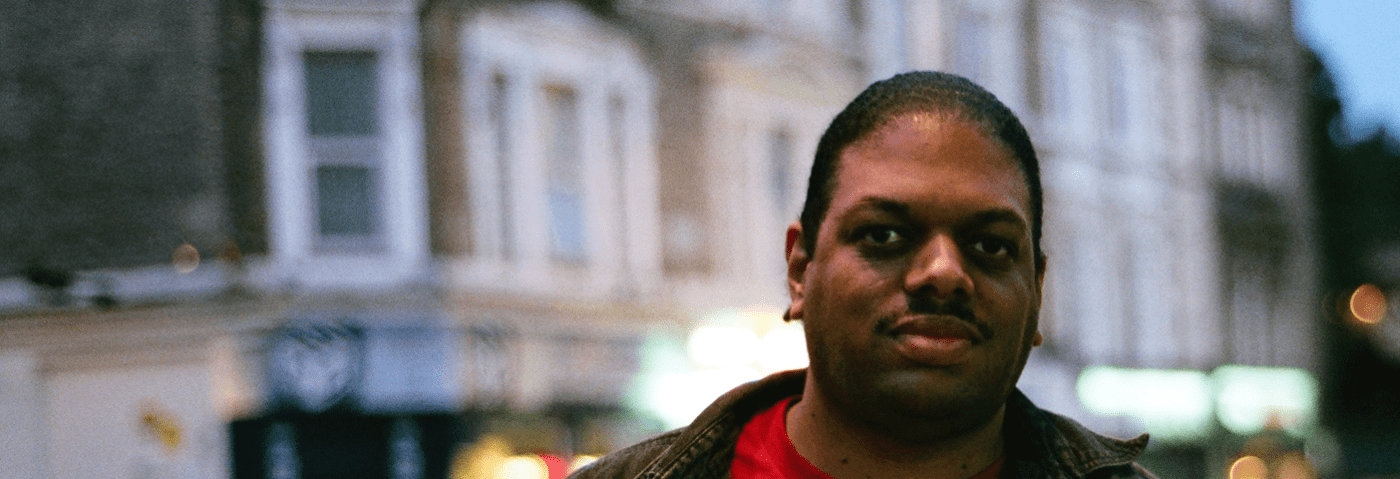
08.39 PM
Was my first inspiration and still one of the true enduring talents of the scene. Great interview.
11.37 PM
this is an amazing interview. wow. true legend and truly nice guy. respect.
05.07 PM
Great interview – always want more! – but that’ll do nicely. Thanks for posting / sharing.
09.49 PM
Enthralling words from a true artist. Good job getting this out there!
09.35 AM
IF THERE EVER WAS A GENTLEMAN OF THE SCENE…
03.31 PM
Kaoz you are one in a million.
11.14 PM
Compelling interview. Especially telling is how his surroundings, experiences directly influence his music.
05.23 PM
Wow, thought I knew a bit about Kerri’s story. I know lots more now. big up one of the true legends of our scene.
01.17 PM
Great interview here ! The man is outstanding, his life so rich and the personn so humble. One of the best interview i’ve read so far.
10.48 PM
“Kerri masters rhythm and space.”
One of the best interview for One of the best House producer!
01.15 PM
A true legend. Incredible talent and a very humbling inspiration for myself. Thanks for the music Sir Kerri and thanks to Attack for the interview.
04.53 PM
Great interview ! great person and music
08.01 PM
I am so glad the 90’s House music is now given the credence that it deserves. So many talented House and HipHop Producers at the same time; and they where not hindered by clearing samples. As we are talking “House” music here – Kerri Chandler is one of those talented producers that should have even reached higher heights then he has done. An Amazing producer. And if a book has to be written in the development of House music he would have to be in it.
Carl Brown
http://www.electricsoulshow.com